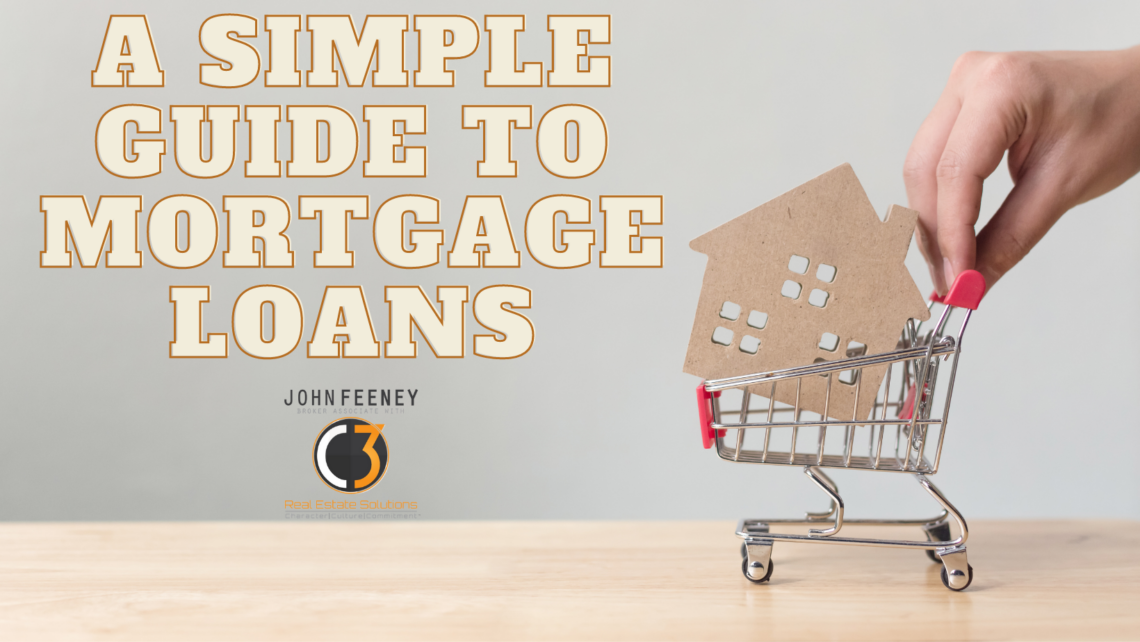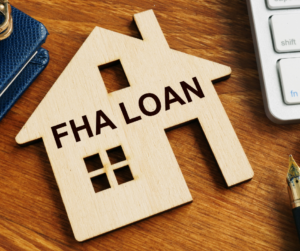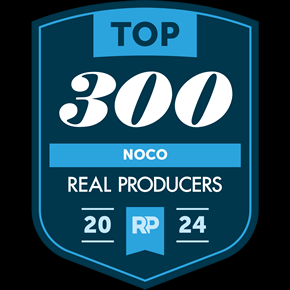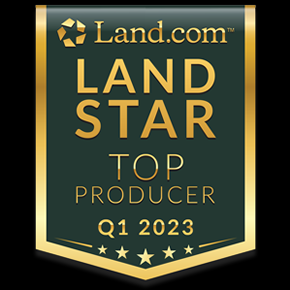
A Simple Guide to Mortgage Loans
When you think of real estate, do the words “mortgage” and “loan” stress you out? Maybe you wonder “What kind of loan do I even need or qualify for?”. Never fear – we have put together a simple guide to the four most common types of mortgage loans!
The four mortgage loans we will discuss are:
- Conventional
- FHA
- USDA
- VA
Without further ado, let’s get into these mortgage loans and how they can help you buy your dream home!
Conventional Loans

Conventional loans are the most common mortgage loan and are not backed by a government agency. These loans are originated and serviced by private mortgage companies, such as banks and credit unions.
Because these loans are not affiliated with government agencies, your credit score and financial history are both big factors when determining whether you qualify for a loan. The better your credit score and history, the better chance you will qualify and the lower your interest rate might be.
It is possible to qualify with a credit score as low as 620 but, depending on the lender, a score of 660 or higher will better your chances of qualifying.
It is possible to find conventional mortgages with down payment requirements as low as 3%; however, if 20% or more is not put down a lender will typically require Private Mortgage Insurance. Private Mortgage Insurance costs between 0.3% and 1.5% of the loan amount annually.
FHA Loans

FHA loans are backed by the Federal Housing Administration, an agency under the Department of Housing and Urban Development jurisdiction. Because the FHA insured these loans, the lender is protected against loss if the loan is defaulted on. The borrower must pay a mortgage insurance premium to insure the lender in the case of a defaulted loan. FHA mortgage insurance charges an upfront amount of 1.75% and a monthly amount of 0.85% of the loan amount.
An FHA loan is designed to aid those who may not qualify for conventional loans due to poor credit and FHA loans have a lower down payment. If the borrower has experienced bankruptcy or other financial issues in the past, they may still qualify for this type of mortgage loan.
There are certain requirements to qualify for an FHA loan:
- The home being purchased must be appraised by an FHA-approved appraiser.
- The home must be the Buyer’s primary residence, not an investment property, and the Buyer must occupy the property within 60 days of the closing date.
- An inspection of the property is not required but is encouraged.
You may have a credit score as low as 500 with a 10% down payment or a score of 580 with a 3.5% down payment.
USDA Loans

This competitively priced mortgage option helps low-income people living in designated rural areas and is backed by the U.S. Department of Agriculture. The main goal of this type of loan is to support those living in rural localities to help boost the local economies in those regions.
The three main mortgage programs are:
- USDA Direct Loans – Issued by the USDA for qualifying low-income borrowers with interest rates as low as 1%.
- USDA Loan Guarantees – Offer low-interest rates and minimal down payment options. These are offered by participating lenders.
- USDA Home Improvement Loans – These loans are given to qualified homeowners who are looking to make repairs and improvements to their homes.
To qualify for a USDA loan, the borrower must be a U.S. citizen (or a non-citizen national or permanent resident alien) and the home being purchased must be in a USDA eligible location. The borrower must demonstrate economic need and their household’s adjusted gross income cannot be more than 115% of the median income of the area.
To determine if you and your family are eligible for a USDA loan, visit the USDA’s Eligibility site.
VA Loans

VA loans are a valuable benefit earned by those who serve and have served in the military. These loans are insured by the Department of Veteran Affairs and are available to eligible veterans, service members, and surviving spouses of service members.
The benefits of a VA loan are easier credit requirements, more lenient borrowing requirements, lower interest rates, and no down payment due at closing for those who meet the entitlement requirements. There is a one-time funding fee of ~2.5% unless the veteran is disabled per the VA. The property is required to be the Borrower’s primary residence within 60 days of closing.
It is important to know your options when it comes to putting a mortgage on a new home, especially if there are opportunities to save money! If you have questions and would like to be connected to a trusted Loan Officer, reach out to John today!





Leave a Reply